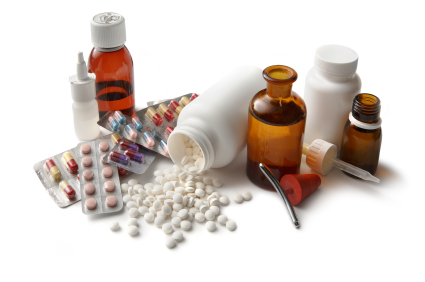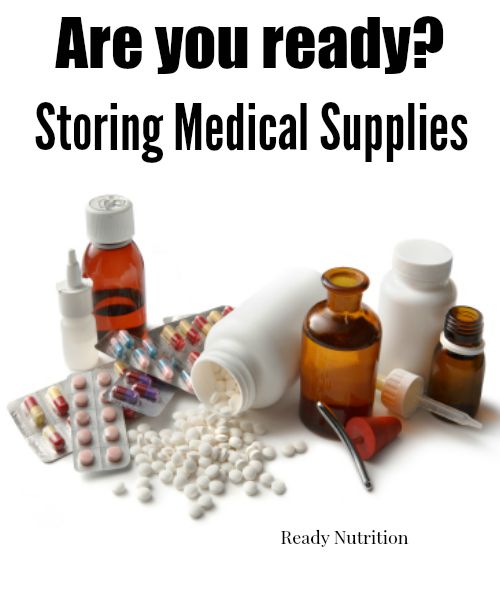 If you take a peek inside the first aid kit at most people’s homes, it’s likely that all you’ll find is a few band-aids, a bottle of aspirin, and perhaps some ointment for cuts.
If you take a peek inside the first aid kit at most people’s homes, it’s likely that all you’ll find is a few band-aids, a bottle of aspirin, and perhaps some ointment for cuts.
But, carefully storing more serious medical supplies in your home could save someone’s life if they needed immediate medical assistance and none was available. In the event of a major disaster, such as a hurricane or earthquake, emergency responders cannot always get to injured victims in time, and that means that you have become the emergency responder in their place.
Experts suggest having a well-stocked arsenal of medical supplies for situations like this.
Suggested Home Medical Supplies
The idea of having medical supplies in the home is to be prepared for a wide variety of situations. You want to be as prepared as possible for everything, whether the medical issue is a cold, a skinned knee, or a serious traumatic injury.
Start off by making an inventory list of everything you might need for all family members. Don’t forget to include medications for children as well as for any family members with special needs.
Here are some items you’ll want to be sure to include:
- Antacids
- Anti-diarrheal medication
- Pain reliever
- Children’s pain reliever
- The Survival Medicine Handbook (This one is very thorough and geared towards survival)
- Prescription medications (It’s best to have extra on hand whenever possible so that you don’t run out during an extended emergency)
- Cold/flu medication
- Vitamins
- Blood clotting granules (This type is highly recommended)
- Sterile gauze
- Dressing bandages
- Dressing rolls
- Medical tape
- Bandages of all sizes
- Alcohol wipes
- Hydrogen peroxide
- Eye flushing solution
- Anesthetic cream
- Antiseptic solution
- Hypodermic needles
- Electrolyte tablets
- Benadryl or other allergy medication
- An epi-pen if someone in the family has life-threatening allergies – watch the expiration date on these
- Scissors
- Tweezers
- Cold packs
- Warm blankets
- Antibiotic ointment
- Thermometers
- Skin irritation creams
- Gloves
- Masks
- Suture needles/string
- List of medical contact phone numbers
- Medical history file
Animals and house pets can often fall victim to an injury as well. Having medicine and first aid supplies for them will ensure their health and safety. You can find more information about creating a first aid kit for your pets here.
Storing Medical Supplies
How you store your first aid supplies is every bit as important as having the supplies in the first place.
Medicines can lose potency or spoil if they are subject to moisture, temperature fluctuations, and light. For example, aspirin begins to break down when it is exposed to a slight amount of moisture.
Unless the instructions indicate otherwise, store medications in a cool, dark place that is out of the reach of children. However, you still want to store the medical supplies in a place that is easily accessible to adults, who may need to respond very quickly in the event of a medical crisis.
Check expiration dates periodically to ensure the medicines are still good to use. While most medicines lose potency once they’re past the expiration date, there are a few that will actually make a person extremely ill if taken after it spoils. For example, tetracycline antibiotics that have spoiled can cause a severe, sometimes deadly, kidney ailment.
Signs of Expired Medicines
Although there is data that medicine can last longer than their expiration dates, knowing the signs of expired medicine can help indicate when new items are needed.
- Creams or ointments which are discolored or have changed in texture.
- Creams or ointments which have cracked or separated.
- The medicines smell has changed since it was opened.
- Tablets are broken or chipped and have changed color.
Source – www.generalmedicine.suite101.com
Don’t limit first aid supplies to your home
Store a first aid kit in the car (being careful with heat sensitive items) and also tuck some medical supplies into your 72-hour bag. This way, you can be ready to deal with medical emergencies wherever they happen to occur.
Add to your medical preparedness by taking some classes: First Aid, CPR, Wilderness First Aid, and First Aid for Children can all be found through organizations like The Red Cross, some colleges, and community centers.
In a disaster situation, having the supplies on hand to deal with a medical emergency could possibly save the life of someone you love.
Related Articles:


Is there a State regulation or guideline regarding storing medical supplies on an outdoor wall? (we are inside the office but the wall is an outdoor wall).
These are not medicines nor are they any infectious supplies. They could be Chubs, cremes, lotions, etc.
I am having trouble with my search to find this answer.
Thank you,
Marie Walker 502-719-4163
Google: OSHA & first aid kit & outside
I am unsure in your list. Did you mean hypodermic needles for the ANESTHETIC solution? Just checking…great info, otherwise…